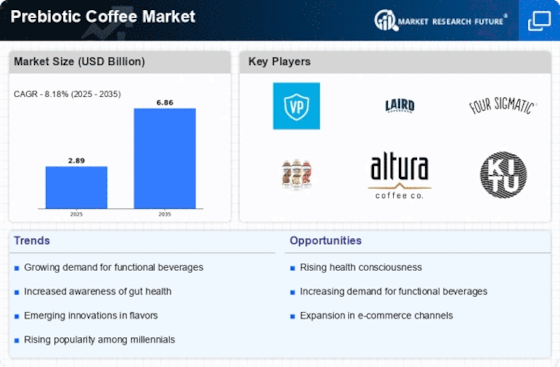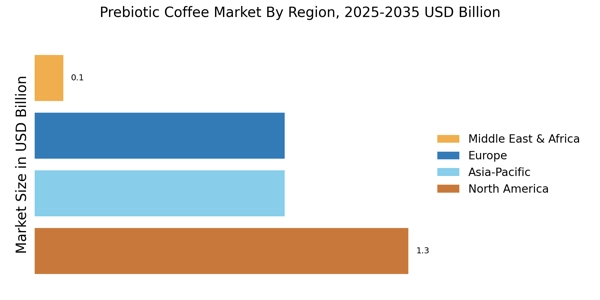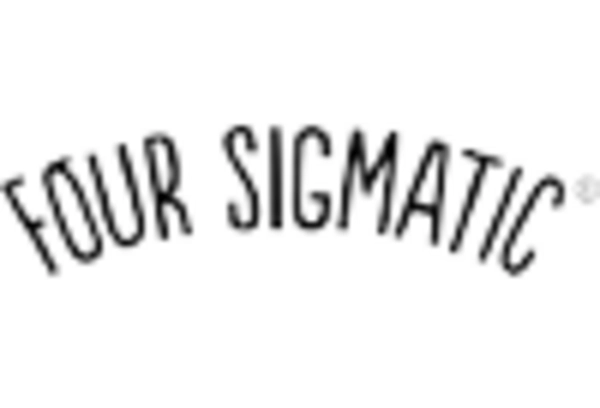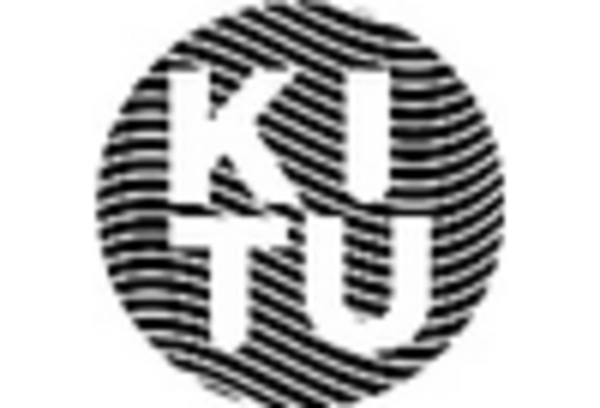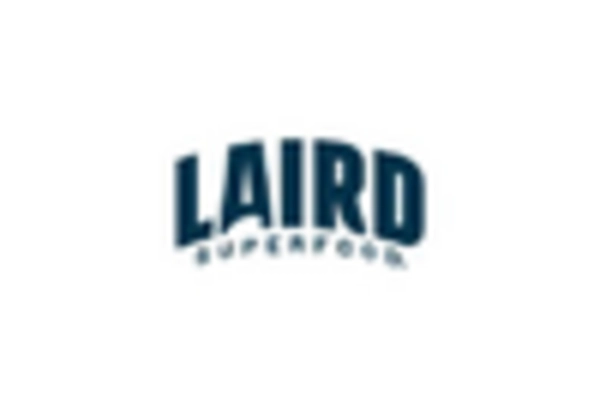Rise of Plant-Based Diets
The growing trend towards plant-based diets is influencing the Prebiotic coffee Market significantly. As more individuals adopt vegetarian and vegan lifestyles, the demand for plant-based products, including coffee infused with prebiotics, is on the rise. This dietary shift is often motivated by health concerns, environmental awareness, and ethical considerations. Prebiotic coffee, which can be derived from various plant sources, appeals to this demographic. Market data suggests that the plant-based food market is expected to reach a valuation of over 74 billion dollars by 2027, indicating a robust interest in plant-derived products. Consequently, the Prebiotic Coffee Market is likely to benefit from this trend, as consumers seek innovative and health-oriented coffee options that align with their dietary choices.
Health Benefits of Prebiotics
The increasing awareness of health benefits associated with prebiotics is a primary driver for the Prebiotic Coffee Market. Consumers are becoming more health-conscious, seeking products that support gut health and overall well-being. Prebiotic coffee, enriched with fibers that promote beneficial gut bacteria, aligns with this trend. Research indicates that the prebiotic market is projected to grow at a compound annual growth rate of 8.5%, reflecting a rising consumer preference for functional foods. This shift towards healthier options is likely to propel the demand for prebiotic coffee, as it offers a convenient way to incorporate prebiotics into daily routines. As consumers prioritize health, the Prebiotic Coffee Market is expected to witness substantial growth, driven by the desire for products that enhance digestive health and immunity.
Innovative Marketing Strategies
The implementation of innovative marketing strategies is playing a crucial role in the growth of the Prebiotic Coffee Market. Brands are increasingly utilizing social media, influencer partnerships, and targeted advertising to reach health-conscious consumers. These strategies not only enhance brand awareness but also educate potential customers about the benefits of prebiotic coffee. Market Research Future indicates that companies employing digital marketing techniques experience higher engagement rates, which can translate into increased sales. As competition intensifies, the ability to effectively communicate the unique selling propositions of prebiotic coffee becomes essential. This focus on innovative marketing is likely to attract a diverse consumer base, thereby propelling the Prebiotic Coffee Market forward as brands strive to differentiate themselves in a crowded marketplace.
E-commerce Growth and Accessibility
The expansion of e-commerce platforms is transforming the retail landscape for the Prebiotic Coffee Market. With the increasing reliance on online shopping, consumers have greater access to a variety of prebiotic coffee products. This shift is particularly beneficial for niche products that may not be widely available in traditional retail outlets. E-commerce sales in the food and beverage sector have seen a significant uptick, with estimates suggesting that online grocery sales could reach 250 billion dollars by 2025. This trend allows brands in the Prebiotic Coffee Market to reach a broader audience, enhancing visibility and sales potential. As convenience becomes a priority for consumers, the ability to purchase prebiotic coffee online is likely to drive market growth, catering to the evolving shopping habits of modern consumers.
Sustainability and Ethical Sourcing
The emphasis on sustainability and ethical sourcing is increasingly influencing consumer choices within the Prebiotic Coffee Market. As awareness of environmental issues grows, consumers are more inclined to support brands that prioritize sustainable practices. This includes sourcing coffee beans from environmentally responsible farms and ensuring fair trade practices. Market data suggests that consumers are willing to pay a premium for products that align with their values, with 66% of global consumers indicating a preference for sustainable brands. This trend is likely to drive the demand for prebiotic coffee that is marketed as ethically sourced and environmentally friendly. As sustainability becomes a key consideration for consumers, the Prebiotic Coffee Market is expected to evolve, with brands adapting their practices to meet the expectations of socially conscious consumers.


